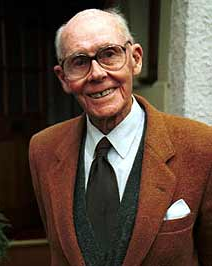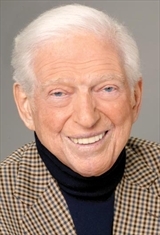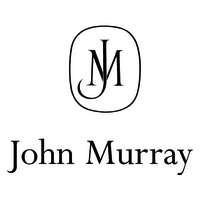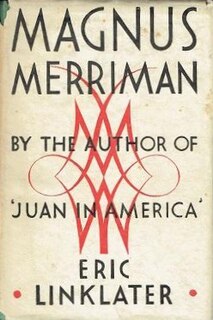
Sir Walter Scott, 1st Baronet, was a Scottish historical novelist, poet, playwright and historian. Many of his works remain classics of European and Scottish literature, notably the novels Ivanhoe, Rob Roy, Waverley, Old Mortality, The Heart of Mid-Lothian and The Bride of Lammermoor, and the narrative poems The Lady of the Lake and Marmion. He had a major impact on European and American literature.
Rohinton Mistry is an Indian-born Canadian writer. He has been the recipient of many awards including the Neustadt International Prize for Literature in 2012. Each of his first three novels were shortlisted for the Booker Prize. His novels to date have been set in India, told from the perspective of Parsis, and explore themes of family life, poverty, discrimination, and the corrupting influence of society.

Nigel Tranter OBE was a writer of a wide range of books on castles, particularly on themes of architecture and history. He also specialised in deeply researched historical novels that cover centuries of Scottish history.
This article contains information about the literary events and publications of 1932.
This article contains information about the literary events and publications of 1839.

The Edgar Allan Poe Awards, popularly called the Edgars, are presented every year by the Mystery Writers of America, based in New York City. Named after American writer Edgar Allan Poe (1809–1849), a pioneer in the genre, the awards honor the best in mystery fiction, non-fiction, television, film, and theater published or produced in the previous year.

Sidney Sheldon was an American writer, director, and producer.

Neil Miller Gunn was a prolific novelist, critic, and dramatist who emerged as one of the leading lights of the Scottish Renaissance of the 1920s and 1930s. With over twenty novels to his credit, Gunn was arguably the most influential Scottish fiction writer of the first half of the 20th century.

Sir Hugh Seymour Walpole, CBE was an English novelist. He was the son of an Anglican clergyman, intended for a career in the church but drawn instead to writing. Among those who encouraged him were the authors Henry James and Arnold Bennett. His skill at scene-setting and vivid plots, as well as his high profile as a lecturer, brought him a large readership in the United Kingdom and North America. He was a best-selling author in the 1920s and 1930s but has been largely neglected since his death.

Jonathan Cape is a London publishing firm founded in 1921 by Herbert Jonathan Cape, who was head of the firm until his death in 1960.

John Murray is a British publisher, known for the authors it has published in its history, including Jane Austen, Sir Arthur Conan Doyle, Lord Byron, Charles Lyell, Johann Wolfgang von Goethe, Herman Melville, Edward Whymper, Thomas Malthus, David Ricardo, and Charles Darwin. Since 2004, it has been owned by conglomerate Lagardère under the Hachette UK brand. Business publisher Nicholas Brealey became an imprint of John Murray in 2015.

Hart Hanson is an American-born television writer and producer, as well as an author. His family moved to Canada when he was a child. He received a B.A. from the University of Toronto and a MFA from the University of British Columbia, where he taught briefly. He is the creator, executive producer, and writer of the TV series Bones.
Hugh Walter Kelsey was a British bridge player and writer, best known for advanced books on the play of the cards.
Carolyn Hart is a mystery and suspense writer. She is the author of 63 books, including the Dearth on Demand, Henrie O and Bailey Ruth series. In 2014, she was named a Grand Master by the Mystery Writers of America. She was born in Oklahoma in 1936.
Phebe Gibbes was an 18th-century English novelist and early feminist. She authored twenty-two books between 1764 and 1790, and is best known for the novels The History of Mr. Francis Clive (1764), The Fruitless Repentance; or, the History of Miss Kitty Le Fever (1769), and The History of Miss Eliza Musgrove (1769). She received recent attention with the scholarly publication of Hartly House Calcutta (1789) in 2007.
Kaui Hart Hemmings is an American writer. She is best known for her novel, The Descendants (2007), which was adapted into an award-winning film.
Chris Dolan is a Scottish novelist, poet, and playwright.

Right Through the Pack: A Bridge Fantasy is a 1947 book about the game of contract bridge by Robert Darvas and Norman de Villiers Hart. It includes 52 deals in which each of the 52 cards of the pack plays a significant role, described by and interspersed with comments from the playing cards themselves, the anthropomorphic "People of the Pack".

Magnus Merriman is a 1934 comedy novel by the British writer Eric Linklater. It portrays the adventures of an aspiring politician who marries and settles down on Orkney. It had a strong autobiographical element as Linklater had himself unsuccessfully stood in the 1933 East Fife by-election for the National Party of Scotland.











